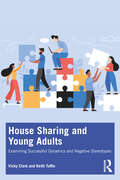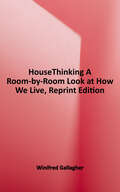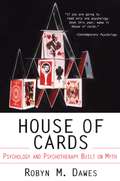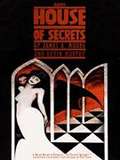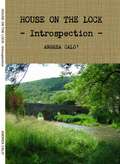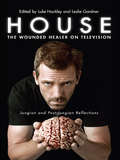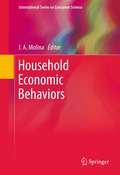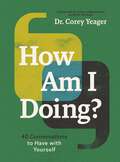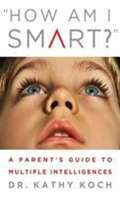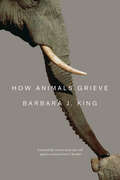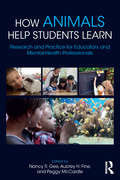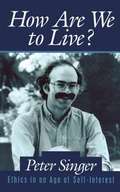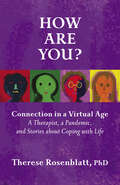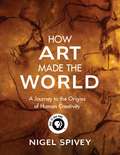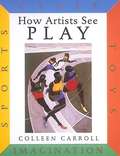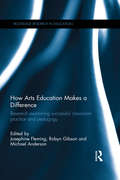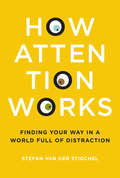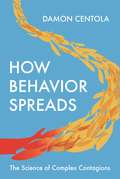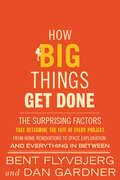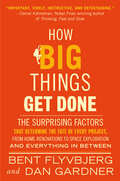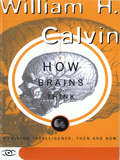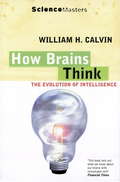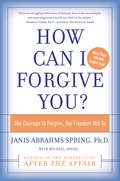- Table View
- List View
House Sharing and Young Adults: Examining successful dynamics and negative stereotypes
by Keith Tuffin Vicky ClarkHouse Sharing and Young Adults offers unique insight into the dynamics of successful house sharing among young adults and questions some of the myths fostered by the negative stereotyping of housemates. Illustrated with research from interviews with young adults, it explores co-residence, interpersonal relationships and young people’s development. Beginning with an overview of the concept and history of house sharing among young adults, Clark and Tuffin’s volume also examines the reasons for the lack of research into the area up until recently. It explores key questions, including how young adults choose housemates, what makes a desirable housemate, avoiding complications, the psychological advantages of house sharing, how conflict arises, and the impact of house sharing on adult development. The authors challenge the stigma of shared domesticity, demonstrating the potential of house sharing to enhance well-being through companionship while acknowledging the potential pitfalls caused by tension in intimate settings. House Sharing and Young Adults will be essential reading for both undergraduate and postgraduate students of social psychology, developmental psychology, sociology and anthropology, as well as those interested in group dynamics, housing demographics and discrimination.
House Thinking: A Room-by-Room Look at How We Live
by Winifred Gallagher“A fascinating book that investigates and explains the emotional impact our homes have on our lives. House Thinking . . . guides the way for us to live out our most creative selves at home.” —Wendy Goodman, interior design editor, New York magazine IKEA, Ethan Allen and HGTV may have plenty to say about making a home look right, but what makes a home feel right? In House Thinking, journalist and cultural critic Winifred Gallagher takes the reader on a psychological tour of the American home. By drawing on the latest research in behavioral science, an overview of cultural history, and interviews with leading architects and designers, she shows us not only how our homes reflect who we are but also how they influence our thoughts, feelings, and actions. How does your entryway prime you for experiencing your home? What makes a bedroom a sensual oasis? How can your bathroom exacerbate your worst fears? House Thinking addresses provocative questions like these, enabling us to understand the homes we've made for ourselves in a unique and powerful new way. It is an eye-opening look at how we live . . . and how we could live.
House of Cards
by Robyn DawesRobin Dawes spares no one in this powerful critique of modern psychotherapeutic practice. As Dawes points out, we have all been swayed by the "pop psych" view of the world--believing, for example, that self-esteem is an essential precursor to being a productive human being, that events in one's childhood affect one's fate as an adult, and that "you have to love yourself before you can love another."
House of Secrets
by Kevin C. Murphy James MooreThe first novel based on Vampire: The Eternal Struggle collectible card game from Wizards of the Coast. It takes you deep into the World of Darkness, a world where vampires engage in the ultimate struggle for power under the cover of darkness.
House on the lock
by Rosemary Dawn Allison Andrea Calo'Book Description Wisdom is enclosed in the heart of each one of us. Serves only courage to bring it out. Look inside; question your own conscience to have the hidden secrets held therein emerge. This is the key to understanding ourselves and the entire world.
House: Jungian and Post-Jungian Reflections
by Leslie Gardner Luke HockleyHouse MD is a globally successful and long-running medical drama. House: The Wounded Healer on Television employs a Jungian perspective to examine the psychological construction of the series and its namesake, Dr Gregory House. The book also investigates the extent to which the continued popularity of House MD has to do with its representation of deeply embedded cultural concerns. It is divided into three parts - Diagnosing House, Consulting House and Dissecting House, - and topics of discussion include: specific details, themes, motifs and tropes throughout the series narrative, character and visual structure the combination of performative effects, text and images of the doctor and his team the activities of the hero, the wounded healer and the puer aeternus. Offering an entirely fresh perspective on House MD, with contributions from medical professionals, academics and therapists, this book is essential reading for students and scholars of Jungian psychology. The inclusion of a glossary of Jungian terms means that this book can also be enjoyed by fans of House MD who have been seeking a more in-depth analysis of the series.
Household Economic Behaviors
by J. A. MolinaSignificant recent changes in the structure and composition of households make the study of the economic relationships within the household of particular interest for academics and policy-makers. In this context, Household Economic Behaviors, through its focus on theoretical and empirical chapters on a range of economic behaviors within the household, provides a new and timely viewpoint. Following the Introduction and one or two surveys which give a general background, the volume includes theoretical and empirical perspectives on allocation of available time within the household, monetary and non-monetary transfers between household members, and intra-household bargaining.
How Am I Doing?: 40 Conversations to Have with Yourself
by Dr. Corey YeagerLife is hard. But it gets a whole lot easier when you start to talk it out. In How Am I Doing?, you're invited into a series of conversations with yourself to discover your purpose, honor your story, and explore who you want to be.Dr. Corey Yeager, psychotherapist for the NBA&’s Detroit Pistons and most recently featured on Oprah and Prince Harry's The Me You Can't See on Apple TV+, offers you 40 questions to help you raise awareness of your thoughts and emotions and reconnect with who you want to be.Over the course of these 40 conversations with yourself, you're invited to:Build trust with yourselfConsider how past traumas affect your life todayGrow a practice of positive self-talkLet go of guilt and regret from your pastDevelop mental health strategies for what to for moments when you're depressed or anxiousIncrease your confidence and embrace your emotions Each of the 40 questions is paired with a short, thoughtful reflection from Dr. Yeager, along with prompts and self-care strategies to help you look at yourself in the mirror and come into alignment with who you want to be.So join the conversation; nothing is off-limits here. Come check in with yourself and take these small, simple steps to journey toward a more honest and harmonious way of living.
How Am I Smart?: A Parent's Guide to Multiple Intelligences
by Kathy KochHas your daughter come to you in tears, asking, "Am I smart?" Or has your son wanted to know, "How smart am I?" Dr. Kathy wants children to ask an even more important question, "How am I smart?" When parents determine ways children can be smart, they'll better understand their own children's educational needs and how they learn best.
How Animals Grieve
by Barbara J. KingFrom the time of our earliest childhood encounters with animals, we casually ascribe familiar emotions to them. But scientists have long cautioned against such anthropomorphizing, arguing that it limits our ability to truly comprehend the lives of other creatures. Recently, however, things have begun to shift in the other direction, and anthropologist Barbara J. King is at the forefront of that movement, arguing strenuously that we can and "should" attend to animal emotions. With "How Animals Grieve," she draws our attention to the specific case of grief, and relates story after story from fieldsites, farms, homes, and more of animals mourning lost companions, mates, or friends. King tells of elephants surrounding their matriarch as she weakens and dies, and, in the following days, attending to her corpse as if holding a vigil. A housecat loses her sister, from whom she's never before been parted, and spends weeks pacing the apartment, wailing plaintively. A baboon loses her daughter to a predator and sinks into grief. In each case, King uses her anthropological training to interpret and try to explain what we see to help us understand this animal grief properly, as something neither the same as nor wholly different from the human experience of loss. The resulting book is both daring and down-to-earth, strikingly ambitious even as it is careful to acknowledge the limits of our understanding. Through the moving stories she chronicles and analyzes so beautifully, King brings us closer to the animals with whom we share a planet, and helps us see our own experiences, attachments, and emotions as part of a larger web of life, death, love, and loss.
How Animals Help Students Learn: Research and Practice for Educators and Mental-Health Professionals
by Nancy R. Gee Aubrey H. Fine Peggy McCardleHow Animals Help Students Learn summarizes what we know about the impact of animals in education and synthesizes the thinking of prominent leaders in research and practice. It’s a much-needed resource for mental-health and education professionals interested in incorporating animals in school-based environments, one that evaluates the efficacy of existing programs and helps move the field toward evidence-based practice. Experts from around the world provide concrete examples of how animals have been successfully incorporated into classroom settings to achieve the highest level of benefit while also ensuring the health and welfare of the students and animals involved.
How Are We to Live?: Ethics in an Age of Self-Interest
by Peter Singerrefutes the idea that humans are by nature selfish; powerful call to live an ethical life.
How Are You Feeling Today Baby Bear?: Exploring Big Feelings After Living in a Stormy Home
by Jane Evans Laurence JacksonBaby Bear lives in a home with the Big Bears, and loves to chase butterflies and make mud pies - they make Baby Bear's tummy fill with sunshine. Then, one night, Baby Bear hears a big storm downstairs in the house and in the morning, Baby Bear's tummy starts to feel grey and rainy. How will such a small bear cope with these big new feelings? This sensitive, charming storybook is written to help children who have lived with violence at home to begin to explore and name their feelings. Accompanied by notes for adults on how to use each page of the story to start conversations, it also features fun games and activities to help to understand and express difficult emotions. It will be a useful book for social workers, counsellors, domestic violence workers and all grown-ups working with children.
How Are You?: A Therapist, A Pandemic, and Stories about Coping with Life
by Dr. Therese RosenblattA therapist shares her patients&’ experiences—and her own—during the dramatic disruption of the Covid crisis. By turns a memoir, a chronicle, and a provocative contemplation of life in a socially distanced and virtual world, How Are You? tells the story of a therapist plunged overnight into the unsettling reality of a pandemic and all-virtual therapy. Therese Rosenblatt shares her privileged front-row seat into the hearts and minds of her patients, to report on what has gone on inside real peoples&’ heads from the dark, early days of the pandemic through its long, drawn-out progression. Dr. Rosenblatt then trains her attuned eyes and ears onto herself, sharing some of her experiences and challenges—and unexpected pleasures—as she navigates this new world together with her patients. In addition to recounting how her patients are coping with loss, loneliness, and isolation, as well as overcrowding with relatives, spouses, and partners and challenges with substance use, she opens a window into her private thoughts as she conducts her sessions. All the while, she contemplates the specter of catastrophic illness and the move to an existence liberated from the physical space of the consulting room, yet missing its comforts and human sensibilities. Whether addressing difficult marriages, ambivalence about pregnancy, or young adults trying to launch into the world while locked down with their parents, Dr. Rosenblatt offers insight gleaned from twenty-six years of practice—and explores in depth this historic event&’s psychological effects on us as individuals.
How Art Made the World: A Journey to the Origins of Human Creativity
by Nigel SpiveyIn the late nineteenth century, the first discoveries of prehistoric painting were greeted with incredulity. How could there have been such deft and skillful artists in the world over 30,000 years ago? Noted art historian Nigel Spivey begins with this puzzle to explore the record of humanity’s artistic endeavors and their impact on our own development. Embarking with the motto, "Everyone is an artist,” Spivey takes us on a quest to find out when and how we humans began to explore the deepest questions of life, using visual artforms. With the help of vivid color illustrations of some of the world’s most moving and enduring works of art, Spivey shows how that art has been used as a means of mass persuasion, essential to the creation of hierarchical societies, and finally, the extent to which art has served as a mode of terror management in the face of our inevitable death. Packed with new insights into ancient wonders and fascinating stories from all around the globe, How Art Made the World is a compelling account of how humans made art and how art makes us human.
How Artists See Play: Sports Games Toys Imagination
by Colleen CarrollExamines how sports, games, toys, and other aspects of play have been depicted in works of art from different time periods and places.
How Arts Education Makes a Difference: Research examining successful classroom practice and pedagogy (Routledge Research in Education)
by Michael Anderson Josephine Fleming Robyn GibsonThis book presents ground-breaking research on the ways the Arts fosters motivation and engagement in both academic and non-academic domains. It reports on mixed method, international research that investigated how the Arts make a difference in the lives of young people. Drawing on the findings of a longitudinal quantitative study led by the internationally renowned educational psychologist Andrew Martin, the book examines the impact of arts involvement in the academic outcomes of 643 students and reports on the in-depth qualitative research that investigates what constitutes best-practice in learning and teaching in the Arts. The book also examines drama, dance, music, visual arts and film classrooms to construct an understanding of quality pedagogy in these classrooms. With its evidence-based but highly accessible approach, this book will be directly and immediately relevant to those interested in the Arts as a force for change in schooling. How Arts Education Makes a Difference discusses: The Arts Education, Motivation, Engagement and Achievement Research Visual Arts, Drama and Music in Classrooms Technology-mediated Arts Engagement International Perspectives on Arts and Cultural Policies in Education This book is a timely collation of research and experiential findings which support the need to promote arts education in schools worldwide. It will be particularly useful for educationists, researchers in education and arts advocates.
How Attention Works: Finding Your Way in a World Full of Distraction (The\mit Press Ser.)
by Stefan Van Der StigchelHow we filter out what is irrelevant so we can focus on what we need to know.We are surrounded by a world rich with visual information, but we pay attention to very little of it, filtering out what is irrelevant so we can focus on what we think we need to know. Advertisers, web designers, and other “attention architects” try hard to get our attention, promoting products with videos on huge outdoor screens, adding flashing banners to websites, and developing computer programs with blinking icons that tempt us to click. Often they succeed in distracting us from what we are supposed to be doing. In How Attention Works, Stefan Van der Stigchel explains the process of attention and what the implications are for our everyday lives.The visual attention system is efficient, Van der Stigchel writes, because it doesn't waste energy processing every scrap of visual data it receives; it gathers only relevant information. We focus on one snippet of information and assume that everything else is stable and consistent with past experience; that's why most people miss even the most glaring continuity errors in films. If an object doesn't meet our expectations, chances are we won't see it. Van der Stigchel makes his case with examples from real life, explaining, among other things, the limitations of color perception (and why fire trucks shouldn't be red); the importance of location (security guards and radiologists, for example, have to know where to look); the attention-getting properties of faces and spiders; what we can learn from someone else's eye movements; why we see what we expect to see (magicians take advantage of this); and visual neglect and unattended information.
How Authors' Minds Make Stories
by Patrick Colm HoganThis book explores how the creations of great authors result from the same operations as our everyday counterfactual and hypothetical imaginations, which cognitive scientists refer to as "simulations. " Drawing on detailed literary analyses as well as recent research in neuroscience and related fields, Patrick Colm Hogan develops a rigorous theory of the principles governing simulation that goes beyond any existing framework. He examines the functions and mechanisms of narrative imagination, with particular attention to the role of theory of mind, and relates this analysis to narrative universals. In the course of this theoretical discussion, Hogan explores works by Austen, Faulkner, Shakespeare, Racine, Brecht, Kafka, and Calvino. He pays particular attention to the principles and parameters defining an author's narrative idiolect, examining the cognitive and emotional continuities that span an individual author's body of work.
How Behavior Spreads: The Science of Complex Contagions (Princeton Analytical Sociology Series #3)
by Damon CentolaA new, counterintuitive theory for how social networks influence the spread of behaviorNew social movements, technologies, and public-health initiatives often struggle to take off, yet many diseases disperse rapidly without issue. Can the lessons learned from the viral diffusion of diseases be used to improve the spread of beneficial behaviors and innovations? In How Behavior Spreads, Damon Centola presents over a decade of original research examining how changes in societal behavior--in voting, health, technology, and finance—occur and the ways social networks can be used to influence how they propagate. Centola's startling findings show that the same conditions accelerating the viral expansion of an epidemic unexpectedly inhibit the spread of behaviors. While it is commonly believed that "weak ties"—long-distance connections linking acquaintances—lead to the quicker spread of behaviors, in fact the exact opposite holds true. Centola demonstrates how the most well-known, intuitive ideas about social networks have caused past diffusion efforts to fail, and how such efforts might succeed in the future. Pioneering the use of Web-based methods to understand how changes in people's social networks alter their behaviors, Centola illustrates the ways in which these insights can be applied to solve countless problems of organizational change, cultural evolution, and social innovation. His findings offer important lessons for public health workers, entrepreneurs, and activists looking to harness networks for social change.Practical and informative, How Behavior Spreads is a must-read for anyone interested in how the theory of social networks can transform our world.
How Big Things Get Done: The Surprising Factors That Determine the Fate of Every Project, from Home Renovations to Space Exploration and Everything In Between
by Bent Flyvbjerg Dan GardnerThe secrets to successfully planning and delivering ambitious, complex projects on any scale—from home renovation to space exploration—by the world's leading expert on megaprojects.Nothing is more inspiring than a big vision that becomes a triumphant, new reality. Think of how the Empire State Building went from a sketch to the jewel of New York's skyline in twenty-one months, or how Apple&’s iPod went from a project with a single employee to a product launch in eleven months.These are wonderful stories. But most of the time big visions turn into nightmares. Remember Boston&’s &“Big Dig&”? Almost every sizeable city in the world has such a fiasco in its backyard. In fact, no less than 92% of megaprojects come in over budget or over schedule, or both. The cost of California&’s high-speed rail project soared from $33 billion to $100 billon—and won&’t even go where promised. More modest endeavors, whether launching a small business, organizing a conference, or just finishing a work project on time, also commonly fail. Why?Understanding what distinguishes the triumphs from the failures has been the life&’s work of Oxford professor Bent Flyvbjerg, dubbed &“the world&’s leading megaproject expert.&” In How Big Things Get Done, he identifies the errors in judgment and decision-making that lead projects, both big and small, to fail, and the research-based principles that will make you succeed with yours. For example:Understand your odds. If you don't know them, you won't win.Plan slow, act fast. Getting to the action quick feels right. But it's wrong. Think right to left. Start with your goal, then identify the steps to get there.Find your Lego. Big is best built from small.Be a team maker. You won't succeed without an "us."Master the unknown unknowns. Most think they can't, so they fail. Flyvbjerg shows how you can.Know that your biggest risk is you.Full of vivid examples ranging from the building of the Sydney Opera House, to the making of the latest Pixar blockbusters, to a home renovation in Brooklyn gone awry, How Big Things Get Done reveals how to get any ambitious project done—on time and on budget.
How Big Things Get Done: The Surprising Factors That Determine the Fate of Every Project, from Home Renovations to Space Exploration and Everything In Between
by Bent Flyvbjerg Dan Gardner&“Why do big projects go wrong so often, and are there any lessons you can use when renovating your kitchen? Bent Flyvbjerg is the &‘megaproject&’ expert and Dan Gardner brings the storytelling skills to How Big Things Get Done, with examples ranging from a Jimi Hendrix studio to the Sydney Opera House.&”—Financial Times &“Entertaining . . . There are lessons here for managers of all stripes.&”—The EconomistA BEST BOOK OF THE YEAR: Economist, Financial Times, CEO Magazine, MorningstarFinalist for the Porchlight Business Book Award, the Financial Times and Schroders Business Book of the Year Award, and the Inc. Non-Obvious Book AwardNothing is more inspiring than a big vision that becomes a triumphant, new reality. Think of how the Empire State Building went from a sketch to the jewel of New York&’s skyline in twenty-one months, or how Apple&’s iPod went from a project with a single employee to a product launch in eleven months.These are wonderful stories. But most of the time big visions turn into nightmares. Remember Boston&’s &“Big Dig&”? Almost every sizeable city in the world has such a fiasco in its backyard. In fact, no less than 92% of megaprojects come in over budget or over schedule, or both. The cost of California&’s high-speed rail project soared from $33 billion to $100 billon—and won&’t even go where promised. More modest endeavors, whether launching a small business, organizing a conference, or just finishing a work project on time, also commonly fail. Why?Understanding what distinguishes the triumphs from the failures has been the life&’s work of Oxford professor Bent Flyvbjerg, dubbed &“the world&’s leading megaproject expert.&” In How Big Things Get Done, he identifies the errors in judgment and decision-making that lead projects, both big and small, to fail, and the research-based principles that will make you succeed with yours. For example:• Understand your odds. If you don&’t know them, you won&’t win.• Plan slow, act fast. Getting to the action quick feels right. But it&’s wrong. • Think right to left. Start with your goal, then identify the steps to get there.• Find your Lego. Big is best built from small.• Be a team maker. You won&’t succeed without an &“us.&”• Master the unknown unknowns. Most think they can&’t, so they fail. Flyvbjerg shows how you can.• Know that your biggest risk is you.Full of vivid examples ranging from the building of the Sydney Opera House, to the making of the latest Pixar blockbusters, to a home renovation in Brooklyn gone awry, How Big Things Get Done reveals how to get any ambitious project done—on time and on budget.
How Brains Think: Evolving Intelligence, Then And Now
by William H. CalvinIf you’re good at finding the one right answer to life’s multiple-choice questions, you’re ”smart. ” But ”intelligence” is what you need when contemplating the leftovers in the refrigerator, trying to figure out what might go with them; or if you’re trying to speak a sentence that you’ve never spoken before. As Jean Piaget said, intelligence is what you use when you don’t know what to do, when all the standard answers are inadequate. This book tries to fathom how our inner life evolves from one topic to another, as we create and reject alternatives. Ever since Darwin, we’ve known that elegant things can emerge (indeed, self-organize) from ”simpler” beginnings. And, says theoretical neurophysiologist William H. Calvin, the bootstrapping of new ideas works much like the immune response or the evolution of a new animal species--except that the brain can turn the Darwinian crank a lot faster, on the time scale of thought and action. Drawing on anthropology, evolutionary biology, linguistics, and the neurosciences, Calvin also considers how a more intelligent brain developed using slow biological improvements over the last few million years. Long ago, evolving jack-of-all trades versatility was encouraged by abrupt climate changes. Now, evolving intelligence uses a nonbiological track: augmenting human intelligence and building intelligent machines.
How Brains Think: Evolving Intelligence, Then And Now (SCIENCE MASTERS)
by William H. CalvinA new theory of Intelligence, from a renowned and highly respected writer on brains and evolutionWhat constitutes consciousness or intelligence? This is a question that has proved to philosophers to be an intellectual dead-end. Now William Calvin, by looking closely at animal and human intelligence and a wide range of evolutionary evidence, has broken new ground that will help us understand mental illness and illuminate the whole notion of what it is to be a person.Calvin begins by asking what intelligence is. He moves to the Why of intelligence, where evidence from chimpanzees is important, before coming to the all-important How of intelligence, the cerebral codes and Darwinian processes that operate within seconds to produce intelligent thought and action.
How Can I Forgive You?
by Janis A. SpringUntil now, we have been taught that forgiveness is good for us and that good people forgive. Dr. Spring, a gifted therapist and the award-winning author of After the Affair, proposes a radical, life-affirming alternative that lets us overcome the corrosive effects of hate and get on with our lives--without forgiving. She also offers a powerful and unconventional model for genuine forgiveness--one that asks as much of the offender as it does of us. This bold and healing book offers step-by-step, concrete instructions that help us make peace with others and with ourselves, while answering such crucial questions as these: How do I forgive someone who is unremorseful or dead? When is forgiveness cheap? What is wrong with refusing to forgive? How can the offender earn forgiveness? How do we forgive ourselves for hurting another human being?
